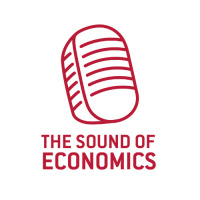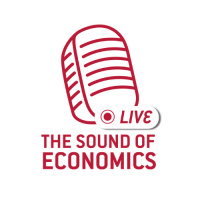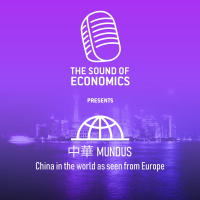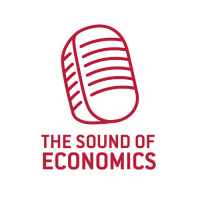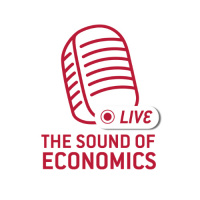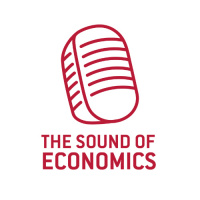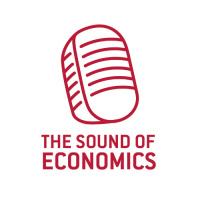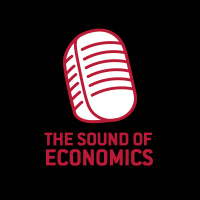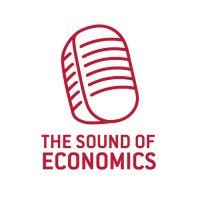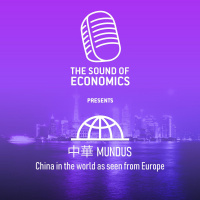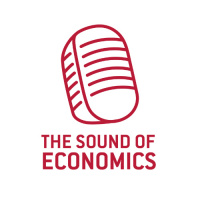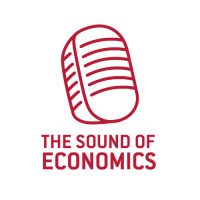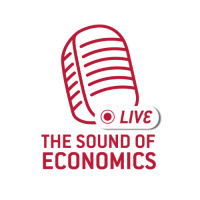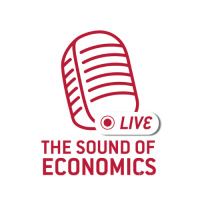Synopsis
Bruegel is the European think tank working in the field of international economics. Established in 2005, Bruegel is independent and non-doctrinal. It seeks to contribute to European and global economic policy-making through open, fact-based and policy-relevant research, analysis and debate.
Episodes
-
Why is China cracking down on big tech?
10/11/2021 Duration: 48minThis episode is part of the ZhōngHuá Mundus series of The Sound of Economics. ZhōngHuá Mundus is a newsletter by Bruegel, bringing you monthly analysis of China in the world, as seen from Europe. Sign up now to receive it in your mailbox! A wave of government regulations is being imposed on China’s digital sector, from gaming platforms to GDPR-like privacy regulations, to a draft regulation cracking down on recommendation algorithms. In the meantime, we have also seen a wave of crackdowns on big tech, from Jack Ma of Alibaba, to the case of Didi. What is going on in China's digital space? What is the general direction going forward? In this episode Giuseppe Porcaro is joined by Bruegel senior fellows Alicia García-Herrero and Mario Mariniello and by guest speaker Rui Ma, creator of Tech Buzz China which educates investors, funds and entrepreneurs on Chinese tech companies.
-
The state of trade: the EU's trade policy
03/11/2021 Duration: 39minBruegel Director Guntram Wolff and Senior fellow Alicia García-Herrero welcome Bernd Lange MEP, Chair of the European Parliament's committee on International Trade to talk big issues in EU trade policy: EU-US trade relation, how to deal with China, strategy on the WTO as well as what trade can achieve in the area of climate change and human rights.
-
Can COP26 save the planet?
28/10/2021 Duration: 26minWith COP26 around the corner, Bruegel Director Guntram Wolff hosts Italy's Minister for Ecological Transition Roberto Cingolani. In this live episode they discuss what the Italy G20 Presidency would like to see from Glasgow: the need for adaptation and mitigation, adequate financing of the transition for the most vulnerable and the need to focus on measuring data and metrics.
-
Rethinking fiscal policy
20/10/2021 Duration: 51minThe pandemic and subsequent downturn have seen EU countries deploy unprecedented fiscal support, while the EU as a whole complemented this with an architectural innovation in the form of the Next Generation EU fund. As European economies begin to recover, is it time to return to pre-pandemic fiscal rules or is it time to reform them? If yes, then what should be changed and how? Bruegel’s Deputy director Maria Demertzis takes a deep dive with Senior fellow Zsolt Darvas and Rolf Strauch, Chief economist of European Stability Mechanism.
-
Will ‘common prosperity’ address China’s inequality?
13/10/2021 Duration: 35minThis episode is part of the ZhōngHuá Mundus series of The Sound of Economics. ZhōngHuá Mundus is a newsletter by Bruegel, bringing you monthly analysis of China in the world, as seen from Europe. Sign up now to receive it in your mailbox! The concept of “common prosperity” has deep roots in the Chinese Communist Party. It was already used in the 1950s and the late 1970s under different leaderships. On August 17 2021, President Xi Jinping highlighted this concept again, calling for China to achieve "common prosperity", seeking to narrow a yawning wealth gap that threatens the country's economic ascent and the legitimacy of Communist Party rule. Since then, there have been simultaneous crackdowns on business sectors and individuals, many of which fall under the umbrella of ‘common prosperity’. Why is this term being brought up again? Why now? What policies have followed? What does the regime want to achieve? Giuseppe Porcaro is joined by Bruegel Senior fellow Alicia García-Herrero and Minxin Pei, Profess
-
Is tech redefining the workplace for women?
06/10/2021 Duration: 28minToday, work is often segregated by gender -- with great ramifications for women across the world. Will increased use of technology decrease or increase current discrepancies? What can we do today in our schools and workplaces to help women in the future? Bruegel's own Giuseppe Porcaro spoke to Bruegel Research Fellow Laura Nurski and the Technical University of Vienna's Professor Sabine Theresia Köszegi about the future of work and gender. Together, they explore the contemporary challenges women face in the workplace, and the potential for solutions in the future. Want to learn more about gender and the future of work? In this podcast, Sabine recommends the UNESCO report "I'd blush if I could" closing gender divides in digital skills through education." You can also learn more about our Future of Work project at our website, https://www.bruegel.org/the-future-of-work-and-inclusive-growth-project/
-
A green fiscal pact
29/09/2021 Duration: 19minPast crises and consolidation episodes have resulted in major public investment cuts. However, in order to meet the European Union’s climate goals, the additional public investment needed is between 0.5 percent and 1 percent of GDP annually during this decade. How does the EU grapple with just how far-reaching the economic implications of the green transition will be? In a paper presented at the recent ECOFIN in September, Bruegel Director Guntram Wolff and Senior fellow Zsolt Darvas advocate for a ‘green golden rule’, that exempts net green public investment from the debt and deficit rules of the Stability and Growth Pact. They explain more in detail with Yuyun Zhan in today’s episode. Read more: Darvas, Z. and G. Wolff (2021) ‘A green fiscal pact: climate investment in times of budget consolidation’, Policy Contribution 18/2021, Bruegel
-
Exploding energy prices
23/09/2021 Duration: 29minWholesale gas prices have reached record highs in the past months, leaving EU governments scrambling for emergency aid to help households cope with their rising bills. However, this is not only about energy: though its origins might be environmental, there are diplomatic, social and economic consequences for governments and citizens. And less than two months after the EU’s bold ‘Fit-for-55’ climate initiative, a gas crisis is threatening the EU’s green agenda. In this episode of The Sound of Economics, Giuseppe Porcaro hosts Bruegel scholars Simone Tagliapietra and Georg Zachmann on the back of their recent blog post on the price of electricity. Recommended readings: Rethinking the security of the European Union’s gas supply (2016) Is Europe’s gas and electricity price surge a one-off? (2021)
-
Unboxing the State of the Union 2021
15/09/2021 Duration: 49minOn 15 September Ursula von der Leyen, President of the European Commission, delivered the State of the Union address before the European Parliament. She took stock of efforts of the past year to tackle the COVID-19 pandemic and presented priorities for the year ahead, addressed the most pressing challenges and propose ideas for shaping the future of the EU, from NextGenerationEU to the European Green Deal and Europe’s Digital Decade. In this episode of The Sound of Economics Live, Giuseppe Porcaro hosts Grégory Claeys, Maria Demertzis and Alicia García-Herrero to evaluate the State of the Union address.
-
A Late Bloomer: where is China’s climate plan?
08/09/2021 Duration: 49minThis episode is part of the ZhōngHuá Mundus series of The Sound of Economics. ZhōngHuá Mundus is a newsletter by Bruegel, bringing you monthly analysis of China in the world, as seen from Europe. Sign up now to receive it in your mailbox! As the largest global emitter of greenhouse gases, China is key to the success of the upcoming COP26 and the global effort for climate neutrality by the mid-century. Yet two months ahead of the Glasgow convention, China has yet to present a concrete policy path to become net-zero by 2060. Why is China taking so long to announce its carbon reduction plan? Giuseppe Porcaro hosts Bruegel China expert Alicia García-Herrero, climate economist Simone Tagliapietra and Dr. Michal Meidan, Director of the China Energy Research Program from the Oxford Institute for Energy Studies, to discuss climate, Chinese affairs and energy economics.
-
The EU recovery fund - state of play and outlook
01/09/2021 Duration: 01h14sThe recovery plan gives Europe a chance to emerge stronger from the pandemic, transform the economy and create opportunities and jobs. It is important that those plans are implemented in a manner that is efficient, fair and sustainable. Bruegel Director Guntram Wolff hosts a conversation between Nadia Calviño, First Vice-President and Minister for Economy and Digitalization of Spain and Karolina Ekholm, Professor in Stockholm University and member of the Bruegel board on the state of play and outlook of the EU recovery fund. Listen in to learn more details on the Spanish programme and the risks and success factors of the recovery programme for the EU as a whole!
-
Environmental, societal and governance criteria: hit or miss?
26/08/2021 Duration: 31minSustainable investing is gaining in popularity as socially conscious clients consider environmental, societal and governance (ESG) criteria when deciding on potential investment. As a result, the financial world is offering more ESG compatible products on the market. While well intentioned, the ability and capacity of ESG criteria in corporate disclosure to achieve climate and social goals is questionable. Bruegel Director Guntram Wolff hosts a debate between Tariq Fancy, the BlackRock executive turned ESG whistleblower, and Non-resident fellow Rebecca Christie, on whether sustainable investing will make the world a better place, and how it differs between North America and Europe. For more Bruegel research on sustainable finance, visit: https://www.bruegel.org/tag/sustainable-finance. For Tariq Fancy’s essay, The Secret Diary of a ‘Sustainable Investor’, visit: https://medium.com/@sosofancy/the-secret-diary-of-a-sustainable-investor-part-1-70b6987fa139
-
Are robots taking our jobs?
20/07/2021 Duration: 49minIn the future, what forces will cause the economy to grow and stagnate? What impact will AI and automation have on the economy? Is capitalism a sustainable economic model? Today on The Sound of Economics, we're asking the big questions. In order to find answers, our own Giuseppe Porcaro hosts Aaron Benanav, recent author of Automation and the Future of Work. Benanav argues that the "rise of the robots" may not really explain future employment crises, or our failure to move into a post-scarcity era. Meanwhile, Bruegel Research Fellow Laura Nurski adds insight from her own research at Bruegel's Future of work and inclusive growth project, and Alexis Moraitis at Lancaster University considers how advances in technology could impact the international political economy. If you want to learn more about the possible robot uprising, check out our work on artificial intelligence in the workplace, or listen to our past podcast, The Skills of the Future.
-
A fitting plan for the European Green Deal?
15/07/2021 Duration: 43minOn 14 July, the European Commission finally announced a large package of measures that will make the EU the first mover in the race limit global warming, with measures targeting all sectors in a deepening and broadening of the European decarbonisation process. In this episode of The Sound of Economics, Bruegel’s Director Guntram Wolff and Bruegel Senior fellow Andre Sapir and Simone Tagliapietra walk you through the 13 proposals and hundreds of pages designed to ensure the continent meets the goal of reducing carbon emissions by 55 percent in 2030 and net zero by 2050, compared with 1990 levels. How ambitious are the goals? How should they be distributed among the citizens, businesses and countries of the EU? How stringent should a new carbon border adjustment be? Recommend readings: How to make the European Green Deal work (2019), GRÉGORY CLAEYS, SIMONE TAGLIAPIETRA AND GEORG ZACHMANN https://www.bruegel.org/2019/11/how-to-make-the-european-green-deal-work/ Fit for 55 marks Europe’s climate mo
-
What should public spending look like?
14/07/2021 Duration: 38minHere's what's clear: public spending is on the rise. Public expenditure ratios have quadrupled since 1870, and increased even more in the recent COVID-19 pandemic. Is that good or bad? What does responsible public spending look like? How should governments institute reforms in order to improve their public spending agendas? These questions are less clear. Bruegel's Director, Guntram Wolff, sits down with Former Deputy Secretary-General of OECD, Ludger Schuknecht to discuss the issues surrounding public spending in post-pandemic economies.
-
CCP's 100th Anniversary: Reflecting and looking forward
07/07/2021 Duration: 45minThis episode is part of the ZhōngHuá Mundus series of The Sound of Economics. ZhōngHuá Mundus is a newsletter by Bruegel, bringing you monthly analysis of China in the world, as seen from Europe. Sign up now to receive it in your mailbox! On July 1st, 2021, the Chinese Communist Party celebrated its 100th anniversary. Today, Bruegel's Giuseppe Porcaro speaks with Bruegel Senior Fellow Alicia García-Herrero and Professor Steve Tsang, Director of SOAS China Institute at University of London about the past, present, and future of the Party. What are the Party's successes and failures? What is the "China model"? Will it ever be exported to other nations? Can the country's economic success continue?
-
Restarting the economy?
30/06/2021 Duration: 47minWhen COVID-19 struck last spring, European governments rapidly implemented measures to keep businesses afloat. Did those policies support productive firms that bolster the economy? Or, did the policies merely enable the survival of "zombie" firms that ought to have gone bankrupt? One year into the pandemic, Bruegel Deputy Director Maria Demertzis speaks with professors Steffen Müller, Filippo di Mauro, and Carlo Altomonte about whether or not fiscal policy has been successful throughout the pandemic, and how governments can deftly adapt their measures to revitalize their economies as more people across Europe receive COVID-19 vaccinations. Relevant event: The impact of COVID-19 on productivity: preliminary firm evidence with Carlo Altomonte, Agnès Bénassy-Quéré, Maria Demertzis, Filippo di Mauro and Steffen Müller.
-
The skills of the future
23/06/2021 Duration: 38min‘Technological change is revolutionising the workplace’, ‘the future is automated’ and ‘a robot will be doing my work before long’ are phrases we hear a lot when it comes to discussing the impact of technological advancement on the labour market and skills. But what is the real impact of robots or AI on the workforce? And, how can we steer technological change in a direction that is labour-complementing and welfare enhancing? How can governments and businesses help workers to adapt to technological change, through reskilling and transitioning initiatives? As part of Bruegel’s Future of work and inclusive growth project, Bruegel fellow Laura Nurski and Dimitrios Pikios, ESCO Project coordinator at DG Employment, Social Affairs and Inclusion at European Commission joined Giuseppe Porcaro to talk about the risks of automation, deskilling but also the opportunities for new learning that come with technology and what policymakers can do to facilitate this.
-
Avoiding a requiem for the WTO
16/06/2021 Duration: 48minAs the only global international organisation dealing with the rules of trade between nations, the World Trade Organisation should be the place where governments sort out the trade problems they face with each other. However, in recent years, WTO members have not managed to conclude new agreements to liberalise trade in goods and services. The organisation has not played a significant role in defusing and addressing the trade conflict between the US and China. It was also largely ‘missing in action’ during the first stages of the global COVID-19 pandemic. All these lead to the conclusion that reform is necessary – whether the political will exists to re engage multilaterally and pursue it is another question. In this live podcast, Giuseppe Porcaro and Niclas Poitiers are joined by Bernard Hoekman, Professor and Director of Global Economics at the Robert Schuman Centre for Advanced Studies, European University Institute in Florence; Petros C. Mavroidis, Edwin B. Parker Professor of Law at Columbia Law Schoo
-
A transatlantic climate alliance
11/06/2021 Duration: 45minPresident Biden is visiting Brussels for the first time since his inauguration on 14 June, with great expectations by European commentators to forge a closer transatlantic cooperation. Prior to his visit, Giuseppe Porcaro and Simone Tagliapietra are joined by Ana Palacio, Former Minister of Foreign Affairs of Spain to discuss why the two sides of the Atlantic should form a climate alliance, which are the challenges the EU and the US will have to overcome; and most importantly, if this joint cooperation would be enough to leverage the rest of the world. Relevant publications: A transatlantic climate alliance, Opinion by Ana Palacio and Simone Tagliapietra


